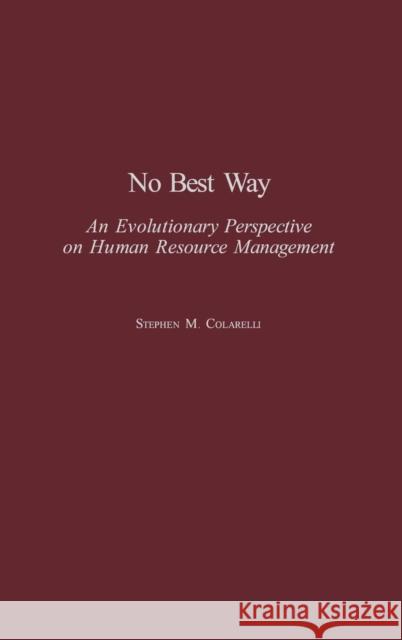No Best Way: An Evolutionary Perspective on Human Resource Management » książka
No Best Way: An Evolutionary Perspective on Human Resource Management
ISBN-13: 9780275957391 / Angielski / Twarda / 2003 / 360 str.
In this provocative volume, a pioneering organizational psychologist explains that the failure of many human resource programs in business, education, and government is largely due to their mechanistic assumptions. By contrasting the classical human resource paradigm--and its emphasis on consistency and a clock-like structure to organizations-- with the evolutionary paradigm and its focus on variation, conflicting interests and complexity, the author shows how shifting to an evolutionary perspective can make organizations more adaptive, hence human resource programs more attuned to human nature and to organizational realities.Colarelli gives a lively intellectual history of classical human resource management thinking, from Plato through the Renaissance to Marx and Taylor to the present, and shows that much of it is imbued with utopian ethos. This volume explodes the myths that there is one best way to organize, that organizations have goals and that human resource programs operate to further organizational goals or the good of the organization. The author explains the evolutionary logic that views organizations as collections of individuals pursuing their own interests and that human resource activities are inevitably enmeshed in personal and conflicting interests. Evolutionary-based interventions that are workable, innovative, and compassionate are presented for use in hiring and training. Colarelli also offers a novel approach to affirmative action to deal with the problems of fairness and performance.











